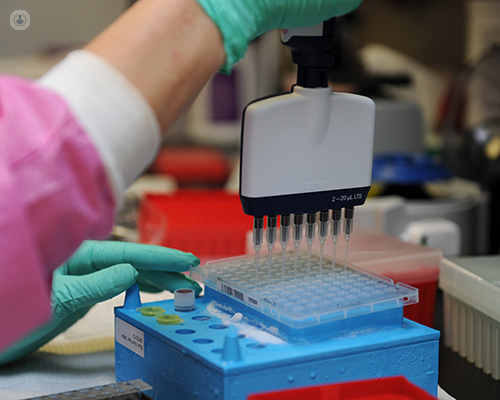Have you had genetic testing and don’t know what the results mean?
Autore:Genetic testing is becoming somewhat of a fad, with skincare companies offering to recommend products based on your genetic makeup, others tailoring your diet and fitness regimes, and even a 'wine explorer' service matching your DNA to your ideal tipple. But are these tests really reliable? When is genetic testing used, and how can it help us? Clinical geneticist Dr Melita Irving breaks down genetic testing, and what it can offer.
Genetic testing can be a minefield at the best of times and as technology progresses, our understanding of the messages held within our genetic code is constantly playing catch-up. In fact, to quote another Donald, 'There are the known knowns. There are the known unknowns. But there are the unknown unknowns. These are the things we don’t know we don’t know.’ Never was there a truer word when it comes to fathoming the results of genomic analysis.
Increasingly, genetic testing is creeping in to our everyday lives. Advertisements on prime time TV tempt us to discover our genetic ancestry using a saliva sample and a prepaid envelope. Offers to personalise your skin care regime through the analysis of your genetic blueprint appear in glossy magazines. DNA-based fitness plans promise to maximise your potential and improve your sporting prowess. Harmless fun maybe, but what happens when genetic markers are analysed to determine your risk of developing certain medical conditions? Can these tests be relied upon? Do we really know what they can tell us about our future health?
Only for a relatively small number of genes is there a direct causal link between harmful alterations and illness. Whereas 12% of women in the general population will develop breast cancer, for example, carrying a mutation in the BRCA1 gene increases this significantly to a 72% lifetime risk. This represents an established cause and effect between the genetic code and cancer risk. Yet several so-called direct-to-consumer tests claim they can predict someone’s future health by virtue of checking for a range of genetic markers. Healthcare professionals are beginning to advocate them to complement their own clinical assessment, perhaps testing for factors that profess to be genetic determinants of nutritional status and strength of immunity, for instance.
But most of these investigations are not validated as reliable medical tests and are usually undertaken without essential genetic counselling support. The results of such blanket genetic testing can be misleading, and the consequence is that more questions about your health arise than answers are provided. The situation can be further compounded by the consequence of limited understanding on the part of the requesting clinician. This can cause greater concern and unnecessary worry. Amateur genetics is not for the faint-hearted.
So if you have had a genetic test that might call into question your future health, perhaps linked to your ability to absorb particular nutrients or because you carry a seemingly ‘toxic’ blend of genetic markers, you need a clinical geneticist to help you understand the reality behind the results.
Learn more about clinical genetics and Dr Irving's work here.



